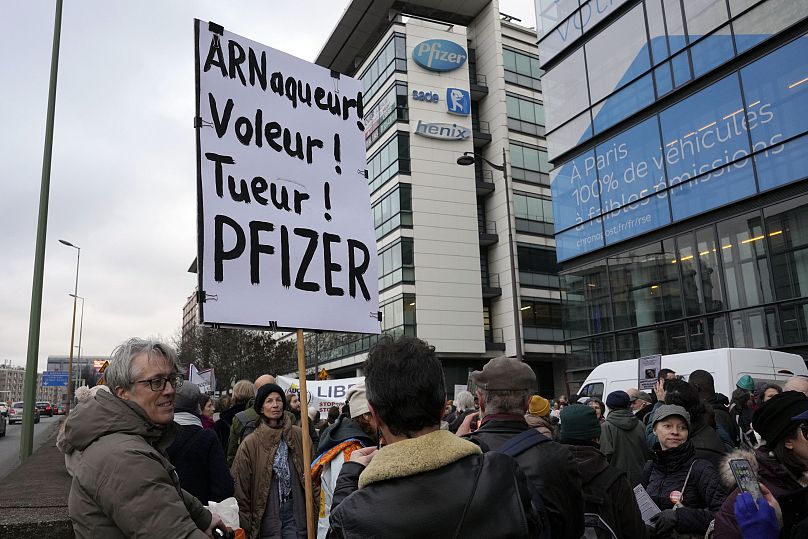Though 300,000 Facebook users have joined a group planning the demonstration, it's unclear how many people are planning to show up.
French people opposed to the country’s vaccine pass system are planning to drive to Paris en masse in protests inspired by the so-called Freedom Convoy in Canada, according to organisers on social media.
 ADVERTISEMENT
ADVERTISEMENT
 ADVERTISEMENT
ADVERTISEMENT
The group is planning on sending six convoys to Paris from various parts of France, including the southern city of Nice and Strasbourg in the west.
Participants have been asked to join using their own cars and meet up with the convoys as they travel throughout France.
Plans posted online show that some groups plan to make stops along their respective routes and arrive in the French capital on Friday.
The protesters in France are drawing inspiration from a similar movement in Ottawa, Canada, that began with truckers protesting vaccine requirements for cross-border travel. The movement has since grown into a wider anti-vaccination protest, with camped-out demonstrators paralysing the Canadian capital. Far-right protesters waving Nazi flags have also been spotted there.
Though the French convoys plan to arrive in Paris at around the same time, organisers have not directly called for a blockade and are asking participants to be respectful and refrain from disorder, violence and aggressive behaviour.
Authorities are taking the initiative seriously, a police source said. Interior Minister Gérald Darmanin told France's BFM TV that officials are preparing in case "some people want to infringe on the liberties of others, especially by blocking access to the capital".
The French protesters say they hope their movement will help them regain the "freedom" and "fundamental rights" that they believe they've been denied since the COVID-19 pandemic emerged, whether through lockdowns or vaccine mandates.
A new law passed in January requires all individuals aged 16 or older to show proof of vaccination or recent recovery from the disease to enter any bars and restaurants or use inter-regional transport.
While France boasts a vaccination rate higher than the European Union average, according to EU data, the country is also home to a vocal minority that believes vaccine mandates infringe on their rights.
Countless studies have found that COVID-19 vaccines are safe and extremely effective in preventing severe cases of the disease and hospitalisations.
It’s unclear how many people are planning on participating in the protest. Several Facebook and Telegram groups have been created to publicise the movement and organise its members, the largest of which has attracted more than 300,000 since it was created on January 26. However, there is little indication as to how many people are planning to get in their cars and drive in the convoys.
One organiser for the group declined an interview request for Euronews, while two others did not respond to requests for comment.
Many of the protesters appear to be alumnae of the 2018 "yellow vest" ("gilets jaunes") movement when thousands of protesters took the streets in opposition to unpopular fuel taxes. Demonstrations quickly mushroomed into a larger movement demanding major changes from President Emanuel Macron's government.











